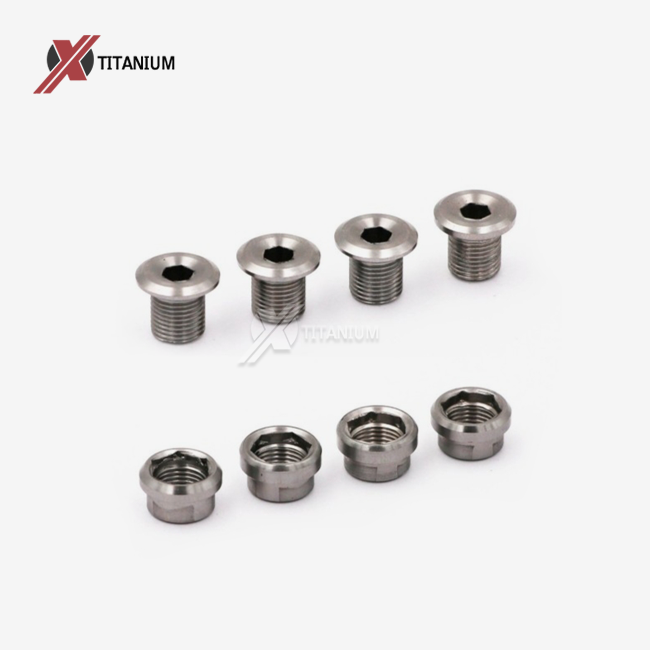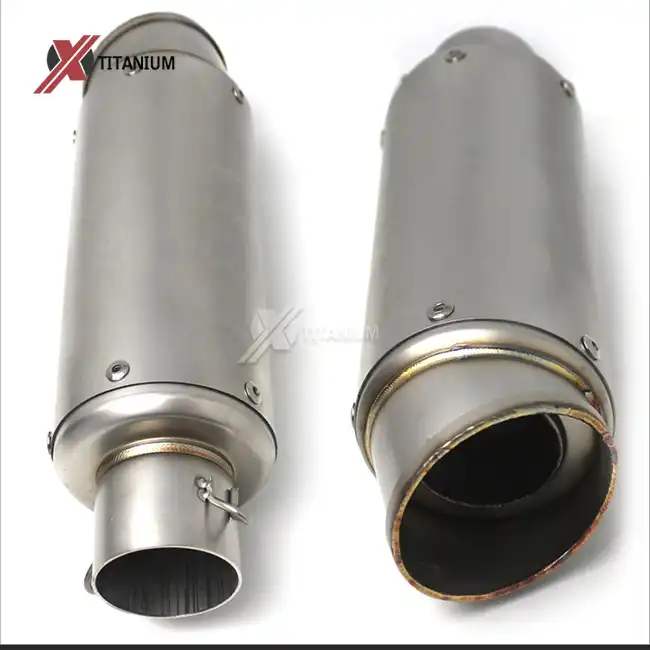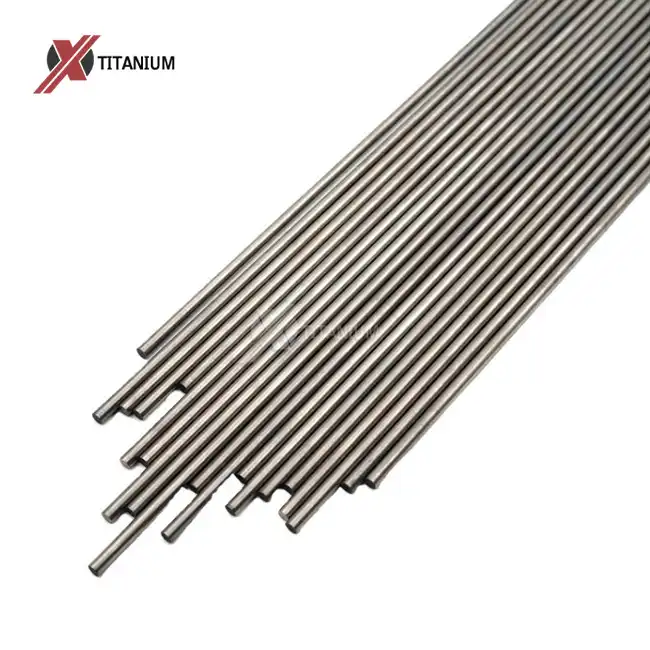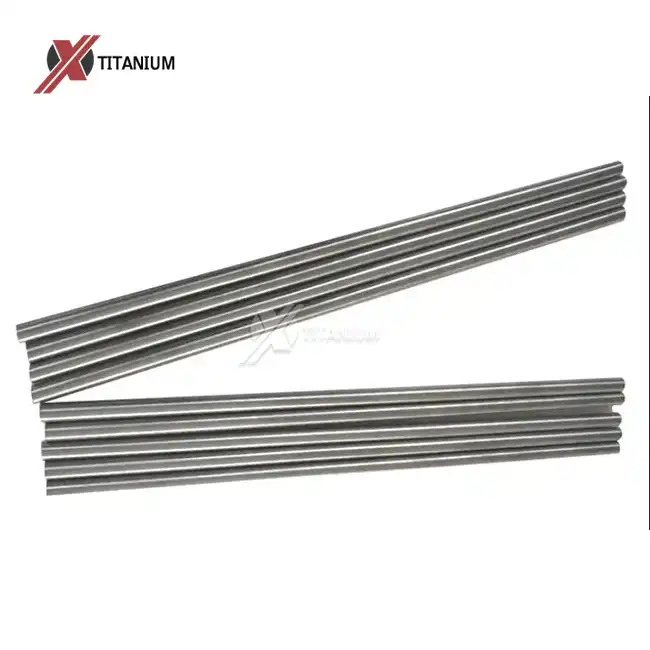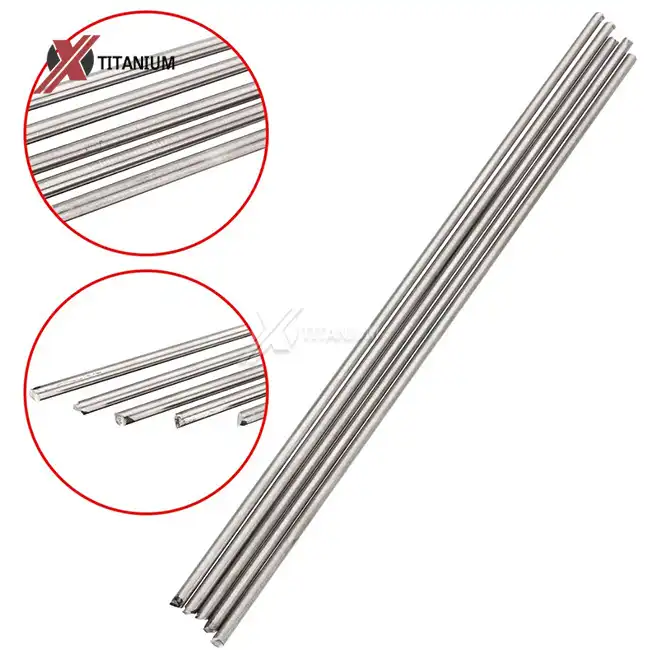Understanding the Versatility of Titanium Chain Ring Bolts
The Allure of Titanium in Cycling Components
Titanium chain ring bolts have gained popularity in the cycling world due to their remarkable properties. These fasteners, crafted from high-grade titanium alloys like Ti-6Al-4V (Grade 5), offer an impressive blend of strength, lightness, and durability. Cyclists and bike manufacturers alike appreciate the corrosion resistance and longevity that titanium brings to critical components like chainring assemblies.
The use of titanium in chain ring bolts aligns with the cycling industry's constant pursuit of performance optimization. By reducing weight in even the smallest components, manufacturers can create bikes that are more agile and responsive. Titanium's strength-to-weight ratio makes it an ideal material for this application, allowing for robust fastening without the bulk associated with steel bolts.
Variability in Chain Ring Bolt Specifications
Despite the advantages of titanium chain ring bolts, it's important to recognize that they are not one-size-fits-all components. The cycling industry encompasses a wide range of bike designs, from road racing machines to mountain bikes and everything in between. Each of these categories may have distinct requirements for chainring assembly, which directly impacts the specifications of the bolts used.
Chain ring bolts can vary in several key aspects:
- Length: Different chainring stack heights require bolts of varying lengths to ensure proper engagement and secure fastening.
- Thread pitch: The spacing and angle of the bolt threads must match the corresponding nuts or threaded inserts in the chainring system.
- Head design: Bolt heads may be designed to sit flush with the chainring surface or protrude slightly, depending on the intended application.
- Diameter: The overall diameter of the bolt can vary, affecting compatibility with chainring bolt holes.
These variations mean that while titanium chain ring bolts offer superior performance, they must be carefully selected to match the specific requirements of each bike's drivetrain configuration.
Factors Influencing Titanium Chain Ring Bolt Compatibility
Bike Manufacturer Specifications
Different bike manufacturers often have their own proprietary designs for chainring systems. This can lead to variations in the required bolt specifications. For instance, some manufacturers may use a standard metric thread pitch, while others opt for imperial measurements. The head shape of the bolts might also be tailored to fit specific recesses in the chainrings, ensuring a seamless integration with the overall design aesthetic of the bike.
Additionally, the evolution of bike technology has led to the development of various chainring configurations, such as single, double, or triple setups. Each of these may have unique requirements for bolt length and spacing. As a result, titanium chain ring bolts that work perfectly on one manufacturer's bike may not be suitable for another's, even within the same category of cycling.
Drivetrain Component Compatibility
The compatibility of titanium chain ring bolts extends beyond just the frame and chainring design. The entire drivetrain system must be considered when selecting these components. Factors such as the crankset design, bottom bracket type, and even the intended use of the bike (e.g., road racing, cyclocross, or mountain biking) can influence the appropriate bolt choice.
For example, modern compact cranksets may require shorter bolts compared to traditional designs. Similarly, bikes designed for more rugged terrain might necessitate bolts with enhanced durability features, such as larger head diameters or specialized coatings to withstand harsh conditions.
Aftermarket Upgrades and Customization
The growing trend of bike customization adds another layer of complexity to the universality of titanium chain ring bolts. Cyclists often upgrade their stock components with aftermarket parts, which can alter the original specifications. When replacing standard bolts with titanium alternatives, it's crucial to ensure that the new bolts not only match the physical dimensions but also provide the necessary clamping force and durability for the intended use.
Customization can also involve mixing components from different manufacturers or adapting parts for non-standard applications. In these cases, the selection of titanium chain ring bolts becomes even more critical, often requiring careful measurement and sometimes custom fabrication to achieve the perfect fit.
Selecting the Right Titanium Chain Ring Bolts for Your Bike
Measurement and Identification
To determine the correct titanium chain ring bolts for your specific bike, precise measurement is essential. This process involves several steps:
1. Measure the length of the existing bolts from under the head to the end of the threaded portion.
2. Determine the thread pitch using a thread gauge or by consulting your bike's documentation.
3. Check the head diameter and shape to ensure compatibility with your chainrings.
4. Note any special features, such as integrated washers or unique head designs.
Armed with these measurements, you can more accurately select titanium chain ring bolts that will fit your bike properly. It's also helpful to reference your bike's manual or the manufacturer's website for specific bolt requirements.
Consulting with Experts
Given the complexity of bike components and the potential consequences of using incompatible parts, consulting with cycling experts can be invaluable. Local bike shops, experienced mechanics, or even the manufacturer's customer support can provide guidance on selecting the appropriate titanium chain ring bolts.
These professionals can offer insights into:
- Compatibility issues specific to your bike model
- Performance considerations for different riding styles
- Installation tips to ensure proper torque and alignment
- Potential modifications needed to accommodate titanium bolts
Quality Considerations
When selecting titanium chain ring bolts, quality should be a top priority. High-quality bolts made from aerospace-grade titanium alloys offer the best performance and longevity. Look for bolts that have undergone rigorous testing and meet industry standards for strength and durability.
Consider factors such as:
- The grade of titanium used (Grade 5 Ti-6Al-4V is often preferred)
- Manufacturing processes (e.g., CNC machining for precision)
- Surface treatments like anodizing or polishing for enhanced corrosion resistance
- Certifications or quality assurance documentation provided by the manufacturer
Investing in high-quality titanium chain ring bolts ensures not only proper fit and function but also long-term reliability and performance for your bike.
Conclusion
While titanium chain ring bolts offer numerous benefits in terms of weight savings, strength, and corrosion resistance, they are not universally interchangeable across all bike models and configurations. The variability in bike designs, manufacturer specifications, and aftermarket customizations necessitates careful selection of these components.
For those seeking high-quality titanium chain ring bolts or other titanium components, Baoji Chuanglian New Metal Material Co., Ltd. offers a wide range of options tailored to various cycling applications. With over a decade of experience in titanium product manufacturing and research, our team can provide expert guidance on selecting the right titanium components for your needs. For more information or to discuss your specific requirements, please contact us at info@cltifastener.com or djy6580@aliyun.com.
